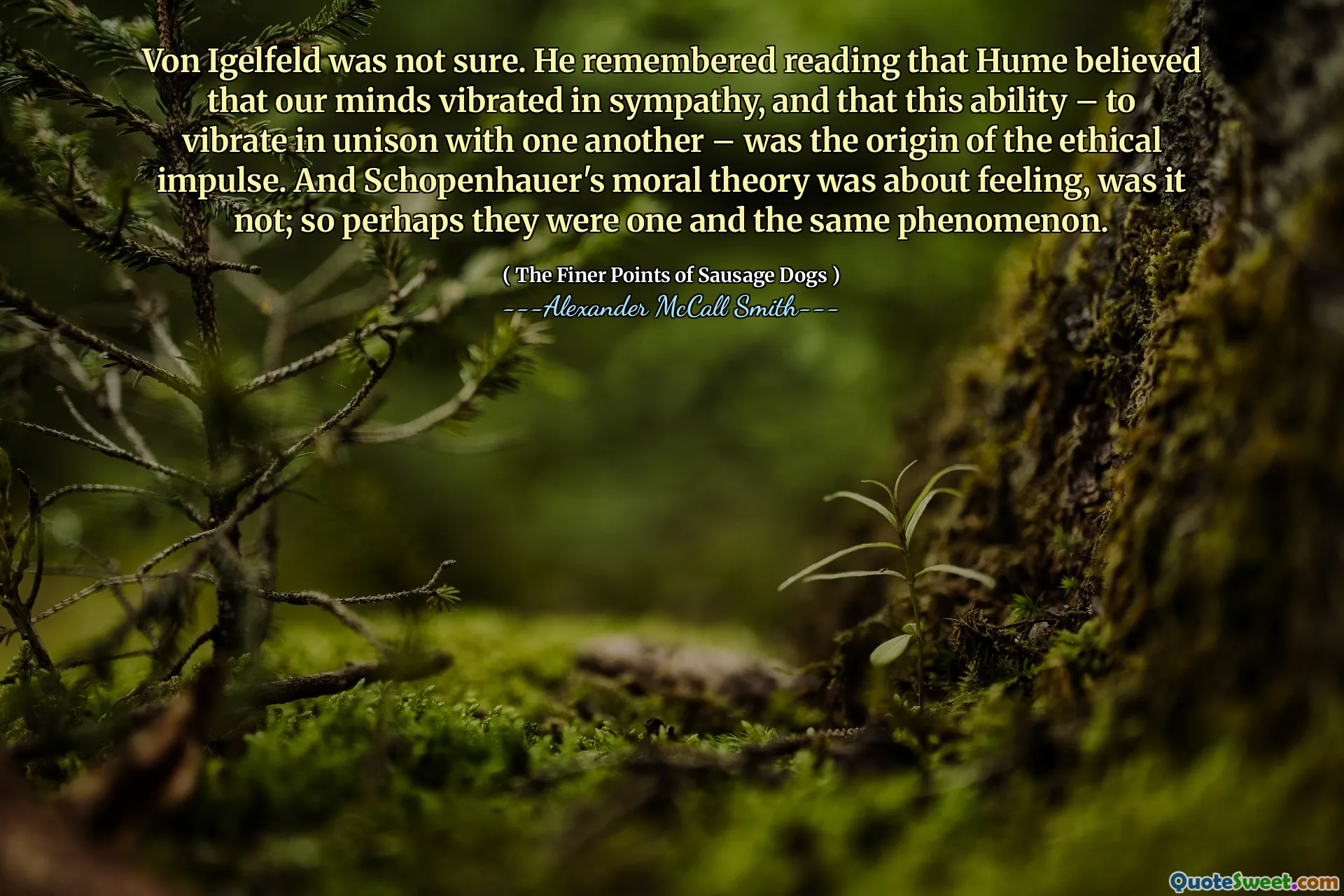
Von Igelfeld was not sure. He remembered reading that Hume believed that our minds vibrated in sympathy, and that this ability – to vibrate in unison with one another – was the origin of the ethical impulse. And Schopenhauer's moral theory was about feeling, was it not; so perhaps they were one and the same phenomenon.
Von Igelfeld found himself contemplating the philosophical ideas of Hume and Schopenhauer, particularly around the nature of human connection and ethics. He recalled that Hume suggested our minds resonate with one another, creating a shared ethical impulse. This resonating quality in human interaction intrigued him, as it hinted at a deeper, shared morality inherent in human relationships.
Furthermore, Von Igelfeld considered Schopenhauer’s focus on feeling as central to moral understanding. He began to wonder whether these two philosophers were addressing the same core concept, suggesting that empathy and emotional resonance might be fundamentally linked to our capacity for ethical behavior. This reflection on the intertwined nature of thought, feeling, and ethics left him pondering the complexity of human connections.







